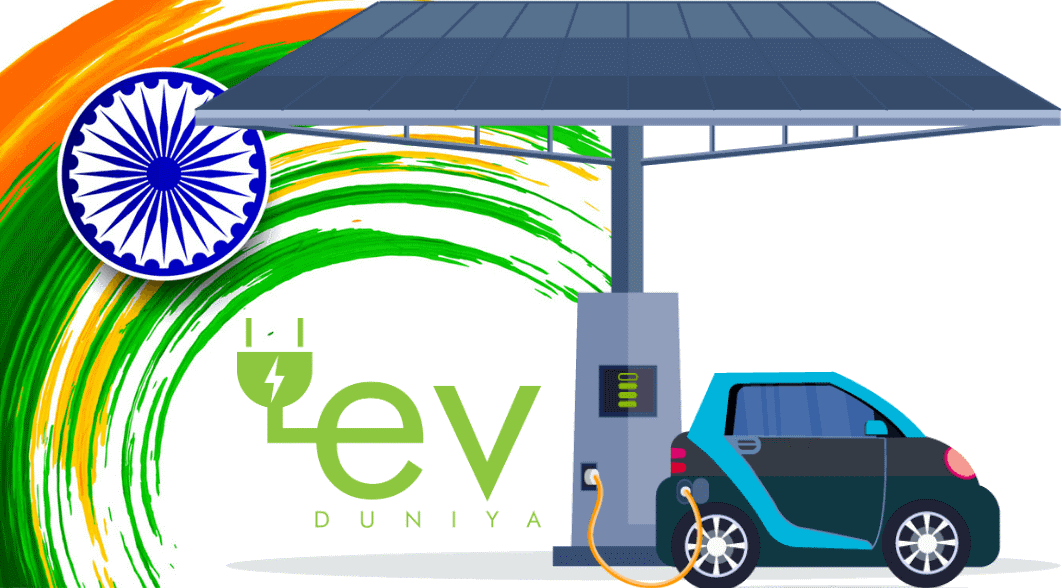
Singapore Electric Vehicle (EV) Charging Market by Charging Type (Off-Board Top-Down Pantograph, On-Board Bottom-Up Pantograph, and Charging Via Connector), Charging Voltage Level (Level 1 (<3.7 KW), Level 2 (3.7–22 KW), and Level 3 (Above 22 KW)), Charger Type (Slow Charger and Fast Charger), Vehicle Charging (AC, DC, Inductive Charging), Application (Commercial and Residential), Commercial (Commercial Public EV Charging Stations, On-Road Charging and Commercial Private EV Charging Stations), Installation Type (Portable Charger and Fixed Charger), IoT Connectivity (Non-Connected Charging Stations and Smart Connected Charging Stations (Networked)) and Charging Standard (CCS, CHADEMO & GB/T, Type 1/Normal Charging, Tesla Super Charger, Type-2, and Level 3) – Opportunity Analysis and Industry Forecast 2023–2030
Industry: Automotive & Transportation | Publish Date: 26-Sep-2023 | No of Pages: 90 | No. of Tables: 72 | No. of Figures: 41 | Format: PDF | Report Code : N/A
Market Definition
Singapore Electric Vehicle (EV) Charging Market was valued at USD 63.03 million in 2022, and is predicted to reach USD 650.92 million by 2030, with a CAGR of 34.4% from 2023 to 2030. Electric vehicle chargers are characterized by the rate at which they deliver energy to the vehicle's battery. They serve as a vital infrastructure connecting plug-in electric vehicles to electrical outlets for the purpose of recharging the vehicle's battery. These chargers facilitate the charging process by supplying the necessary electrical energy to the EV's battery.
Charging stations are compatible with electric vehicles, neighborhood electric vehicles (NEVs), and plug-in hybrids, allowing them to connect to an electrical source for charging. Some charging stations come equipped with advanced functionalities such as smart meters, cellular connectivity, and network access.
The charging of EVs can be carried out through several levels of charging such as level 1, level 2, and level 3. The higher the level of charging, the faster the charging process causing more power to be delivered to the vehicle. The use of electric vehicles significantly reduces the carbon footprints released into the atmosphere, which contain toxic gas. The growing threat of carbon emissions and other harmful gases stemming from transportation has triggered the vital necessity of adopting electric vehicles.
In addition, the penetration of EV charging is high in commercial spaces as compared to residential ones. Long-distance trips would benefit from ultra-fast charging capabilities made possible by public charging infrastructure. However, EV chargers for residential spaces offer significant growth potential as they are affordable and more convenient for charging electric vehicles as compared to commercial charging stations.
Government-Led Initiatives Bolster EV Charging Infrastructure Growth in Singapore
The expansion of the Electric Vehicle (EV) charging market in Singapore is being significantly propelled by increasing government initiatives aimed at improving and expanding the EV charging infrastructure. These initiatives involve investments in the installation of more charging stations across the country, making it easier and more convenient for EV owners to charge their vehicles.
As a result, this not only encourages the adoption of EVs but also provides the necessary infrastructure to support their widespread use, ultimately fostering market growth in Singapore's EV charging sector. For instance, in February 2021, the Singaporean government plans to install 60,000 EV charging stations, with 20,000 of them in private buildings and 40,000 in public parks over the decade.
Surging Adoption of Electric Vehicles Fuelling Growth of EV Charging Stations in Singapore
The increasing adoption of electric vehicles (EVs) in Singapore is poised to drive substantial growth in the EV charging station sector. As more individuals and businesses transition to EVs, the demand for convenient and accessible charging infrastructure rises in tandem. To meet this demand, there is a growing need for the expansion and deployment of EV charging stations across the country. This not only encourages further EV adoption but also supports the development of a robust and comprehensive charging network, fostering the continued growth of EV charging stations in Singapore.
For instance, in September 2022, there are over 3,000 EV charging stations installed across Singapore, which marks a 50% increase from 2021. In Singapore, there are two battery-operated vehicles for every public EV charging point. According to the Land Transport Authority (LTA), additional 400 charging stations will also be installed by the end of 2022.
Fast Chargers' High Initial Setup Costs Hinder the EV Charging Market Growth
The growth of the EV charging sector faces potential hurdles due to the absence of incentives and concerns surrounding the high installation costs of EV chargers. One of the most substantial challenges to industry expansion is the significant upfront cost associated with level 3 and ultra-fast chargers. While level 1 and level 2 chargers can take anywhere from 6 to 16 hours for a full charge, consumers are accustomed to refuelling their conventional fossil fuel vehicles in just 5 to 7 minutes.
As a result, there is a strong market demand for fast chargers capable of recharging EVs in under 30 minutes. However, the initial costs of level 3 charging stations might discourage those considering the transition to EVs, particularly because longer charging times could disrupt their already busy schedules.
Surging Adoption of Vehicle-to-Grid (V2G) EV Charging Stations in Singapore Unlocks Promising Opportunities
Vehicle-to-grid (V2G) EV charging technology enables bidirectional energy exchange between plug-in EVs and the power grid. This innovation allows electric vehicles (EVs) to store surplus electricity and share it with the grid, increasing the value and functionality of EVs for their owners. The development of V2G technology has simplified EV charging, making EVs a preferred mode of transportation.
Consequently, the market for charging stations plays a vital role in connecting EVs to the grid for charging purposes. Enel Energia S.p.A. has installed two V2G EV charging stations at the Italian Institute of Technology's Genoa headquarters as part of the MOV-E project sponsored by Nissan. This partnership between Enel and Nissan signifies a transformative shift in sustainable transportation technology.
Manufacturers stand to benefit significantly from V2G charging technology, which is poised to revolutionize the EV industry and shape the future of EV charging. Despite its advantages over traditional smart charging, the installation of V2G charging stations involves substantial upfront costs. As a result, EV connector manufacturers have a promising opportunity to develop advanced connectors capable of handling the electrical demands associated with the anticipated growth of V2G technology.
Competitive Landscape
The Singapore Electric Vehicle (EV) Charging industry includes several market players such as ABB Ltd., ChargePoint, Inc, Tesla Inc, Shell Recharge Solutions, Star Charge, TELD, Siemens, BYD, EVgo, and Hyundai Motor Company.
KEY BENEFITS
-
The Singapore Electric Vehicle (EV) Charging market report provides a quantitative analysis of the current market and estimations through 2023-2030 that assists in identifying the prevailing market opportunities to capitalize on.
-
The study comprises a deep dive analysis of the market trend including the current and future trends for depicting the prevalent investment pockets in the market.
-
The information related to key drivers, restraints, and opportunities and their impact on the market is provided in the report.
-
The competitive analysis of the market players along with their market share in the Singapore Electric Vehicle (EV) Charging market.
-
The SWOT analysis and Porter’s Five Forces model are elaborated in the study.
-
Value chain analysis in the market study provides a clear picture of the stakeholders’ roles.
SINGAPORE ELECTRIC VEHICLE (EV) CHARGING MARKET KEY SEGMENTS
By Charging Type
-
Off-Board Top-Down Pantograph
-
On-Board Bottom-Up Pantograph
-
Charging Via Connector
By Charging Voltage Level
-
Level 1 (<3.7 KW)
-
Level 2 (3.7–22 KW)
-
Level 3 (Above 22 KW)
By Charger Type
-
Slow Charger
-
Fast Charger
By IOT Connectivity
-
Non-Connected Charging Stations
-
Smart Connected Charging Stations (Networked)
By Vehicle Charging
-
AC (Normal Charging)
-
DC (Super Charging)
-
Inductive Charging
By Application
-
Commercial
-
Residential
By Commercial
-
Commercial Public EV Charging Stations
-
On-Road Charging
-
Parking Spaces
-
Destination Chargers
-
-
Commercial Private EV Charging Stations
-
Fleet Charging
-
Captive Charging
-
By Installation Type
-
Portable Charging
-
Fixed Charging
-
Wall Mount
-
Pedestal Mount
-
Ceiling Mount
-
By Charging Standard
-
CCS
-
CHADEMO & GB/T
-
Type 1/Normal Charging
-
Tesla Super Charger
-
Type-2
-
Level 3
REPORT SCOPE AND SEGMENTATION:
|
Parameters |
Details |
|
Market Size in 2022 |
USD 63.03 Million |
|
Market Volume in 2022 |
4 Thousand Units |
|
Revenue Forecast in 2030 |
USD 650.92 Million |
|
Growth Rate |
CAGR of 34.4% from 2023 to 2030 |
|
Analysis Period |
2022–2030 |
|
Base Year Considered |
2022 |
|
Forecast Period |
2023–2030 |
|
Market Size Estimation |
Million (USD) |
|
Growth Factors |
The increasing government initiative. The increasing adoption of electric vehicles. |
|
Companies Profiled |
10 |
|
Market Share |
Available for 10 companies |
|
Customization Scope |
Free customization (equivalent up to 80 working hours of analysts) after purchase. Addition or alteration to country, regional, and segment scope. |
|
Pricing and Purchase Options |
Avail customized purchase options to meet your exact research needs. |
KEY PLAYERS
-
ABB Ltd.
-
ChargePoint, Inc
-
Tesla Inc
-
Shell Recharge Solutions
-
Star Charge
-
TELD
-
Siemens
-
BYD
-
EVgo
-
Hyundai Motor Company




 Speak to Our Analyst
Speak to Our Analyst


































